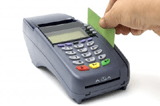What do PayPal Merchant Accounts allow people to do? PayPal is an online commerce facilitator that allows the transfer of currency from one person to another through the internet.In an attempt to …
Continue Reading about PayPal Merchant Accounts: High Risk Internet Marketers Unwanted →



